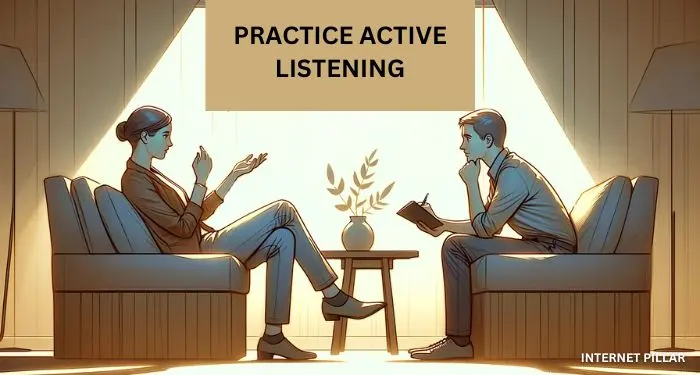Social skills are important for connecting and communicating with others and include abilities like conversation, teamwork and understanding nonverbal cues.
These skills can play an important role in forming friendships, enjoying public interactions and career success.
Shyness or awkwardness can hinder social interactions but improving these skills is possible through practical strategies.
This includes enhancing conversation skills, confidence building and being aware of how others recognize you.

With the shift back to in-person work many face social anxiety yet small adjustments in conversation approach can boost confidence and improve perceptions.
Developing social skills not only enhances work collaboration and self-esteem but also leads to richer relationships and opportunities.
Let’s get started.
17 Tips to Improve Your Social Skills
1. Start Conversations with Compliments
A compliment is a perfect icebreaker. Before diving in, ensure the person isn’t busy.
Say hello and offer a compliment about something like their outfit or their recent work.
This can make them feel good and open up the door for a pleasant chat.

2. Engage in Light Conversations
When chatting, stick to broad topics like the weather or current events.
This approach keeps the conversation flowing smoothly without getting too personal or awkward.
3. Keep It Positive
Avoid negativity. Choose happy subjects to talk about.
Sharing something positive that happened to you or a fun fact you learned can make the conversation more enjoyable for everyone involved.
4. Be Confident in Group Discussions
In group settings, find the right moment to share your thoughts.
Speak clearly and confidently to grab attention.
Don’t worry if it is a bit tricky at first; it gets easier with practice.

5. End Conversations Nicely
Ending a conversation well is key.
If you’re out of things to say, just mention you have other things to attend to, thank them for the chat and express a desire to catch up again later.
6. Take Stand for Yourself
It’s important to be assertive. Practice saying “No” firmly but kindly.
This helps in respecting your boundaries and making your opinions heard.
7. Be Present in Conversations
Focus on the person you’re talking to.
Avoid getting distracted by your thoughts or surroundings.
Being present shows you value the conversation and the person you’re with.
8. Maintain Eye Contact
Eye contact can be challenging but it’s important for effective communication.
Aim for moderate eye contact, adjusting as needed if it feels too intense.
This helps build connection and confidence in interactions.

9. Apologize When Necessary
If you make a mistake or hurt someone’s feelings, apologizing is the best way to handle it.
This shows maturity and can even strengthen your relationships by demonstrating your willingness to make amends.
10. Remember Names to Build Connections
Make an effort to remember names when you meet someone new.
Associate their name with a feature or fact about them.
Using their name in conversation makes them feel valued.
If you forget, it’s okay to ask again, but try to make it stick the second time.
11. Practice Active Listening
Good conversations are a balance of talking and listening.
Show genuine interest by asking open-ended questions and making relevant comments.
This encourages a more engaging and reciprocal dialogue.

12. Set Personal Goals
Identify specific social skills you want to improve or social activities you want to try.
Setting clear, achievable goals can help enhance your social interactions and overall social life.
13. Educate Yourself on Social Skills
Reading books on social skills can offer valuable insights and strategies.
However, real improvement comes from practicing these skills in your daily interactions.
14. Mind Your Body Language
Your non-verbal cues speak volumes.
Maintain open and relaxed body language to appear more approachable and engaged in conversations.
15. Join Supportive Groups
Participating in social skills groups or clubs can provide a supportive environment to practice new skills and meet people with similar interests or challenges.

16. Tackle Anxiety and Shyness
If anxiety or shyness holds you back, recognize the signs and work on strategies to overcome these barriers.
Engaging more in social settings can gradually build your confidence and ease discomfort.
17. Keep Up with the Times
Being informed about current events can provide easy and neutral topics for conversation.
It helps you to initiate and sustain discussions without delving into controversial subjects.
I hope these tips will help you in improving your Social Skills.



